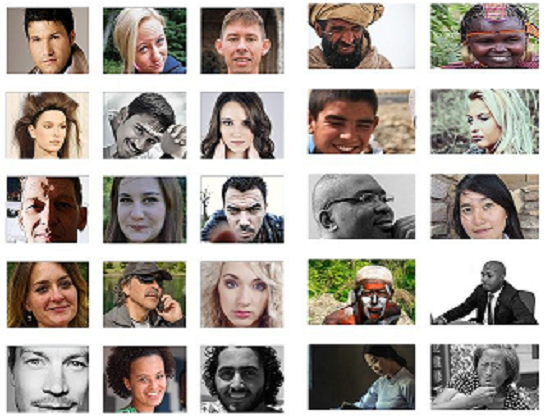June 20, 2016.
I want to tell you about my condition. My hearing is so bad I can’t even hear a fire alarm with my right eye. Then there’s my left ear: it’s as blind as a bat. I can’t even scratch my back with my knee.
Enough of that. Let’s hurry over to 1 Cor. 12: “If the whole body were an eye, where would the hearing be? If the whole were hearing, where were the smelling? But now has God set the members every one of them in the body, as it has pleased him… Now you are the body of Christ, and members in particular” (12:17-18, 27).
The U.S. Declaration of Independence declares that “all men are created equal.” Whatever “equal” means, it does not mean “same.” This could be discussed via biology, anthropology, and psychology, but let’s discuss it biblically.
First of all, Scripture, too, declares that all people are equal: “There is neither Jew nor Greek, there is neither bond nor free, there is neither male nor female: for you are all one in Christ Jesus” (Gal. 3:28). There is equality in Christ, regardless of ethnicity, nationality, social standing, or sex. Nobody is better, or preferred, or more important to God on the basis of such differences.
This does not mean we are all the same. In 1 Cor. 12, Paul states “by one Spirit are we all baptized into one body, whether we be Jews or Gentiles, whether we be bond or free” (12:13). But oneness does not mean sameness: “For the body is not one member, but many… If the ear shall say, Because I am not the eye, I am not of the body; is it therefore not of the body?” (12:14-16). Do not expect all members of your church to be alike. Indeed, expect them to be different from one another.
The letter to the Christians in Rome discusses the same issue. “For as we have many members in one body, and all members have not the same office (function): so we, being many, are one body in Christ, and every one members one of another. Having then gifts differing according to the grace that is given to us…” (Rom. 12:4-6). What follows is a list of gifts and what to do with them. The essence is to do a good job of using the gift you have.
Do we accept differences in the body? Do we think that everyone should be like we are? Should everyone memorize Scripture like I do? Why isn’t everybody as friendly to visitors as I am? Does everyone give as sacrificially I do? Why doesn’t he sing as loud as I do? Why am I the only one who cleans up the messes around here? Why aren’t others visiting hospitals like I do? You get the idea. Do not expect every member to be the same as you.
Or, maybe it’s the other way around. Maybe you are grieved (jealous) because you cannot preach as powerfully as he can. I wish I were as outgoing as she is. I wish I could memorize Scripture like she can. I am not suggesting that we cannot develop in some areas where we are weak; but maybe you are trying to be what you are not. “If the whole body were an eye, where were the hearing?” The implication I see is that the ear should do a good job of hearing, without trying to be an eye. We should realize the need and the beauty of different functions in the body of Christ and thank God that we are not all alike.
The rubber meets the road when you ask yourself: “What member of the body am I? What do I contribute to the cause of Christ? Or am I just a pew warmer?” And don’t limit your evaluation to what goes on in the church building, or even to what we might think of as “church activities.” What are you doing as a member of Christ? How are you making a difference for Christ in your family, in your church, in your neighborhood?
Be careful of saying that you don’t have any abilities to offer: “I am not talented; I have nothing to offer.” For years it was thought that the only purpose of the appendix was to send you to the ER. More recently, scientists are learning otherwise. And maybe you think you have no purpose: but we all do. “Every branch in me that bears not fruit he takes away” (John 15:2). What are you doing for Jesus?
